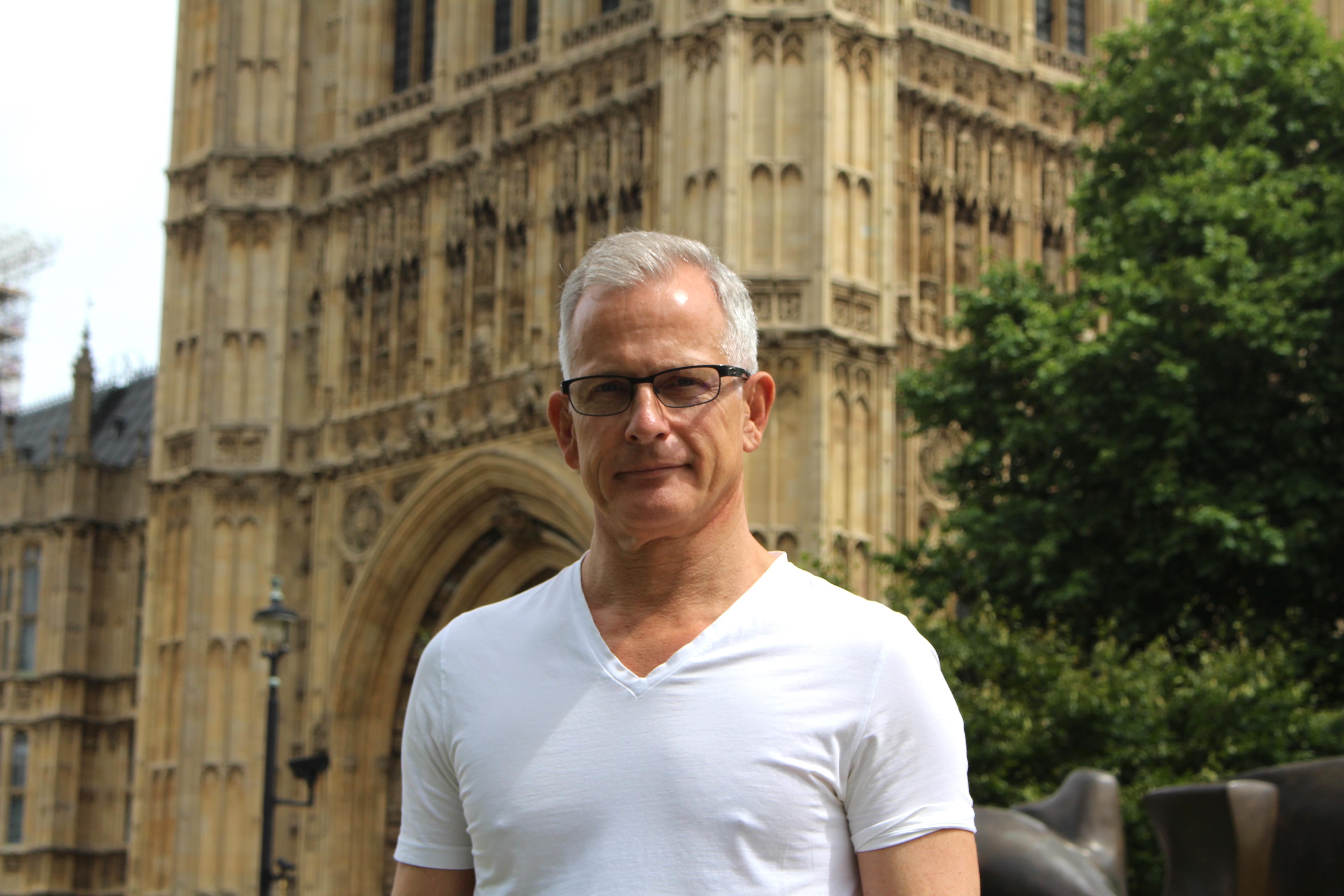Brian Paddick is a man with a lot of names. Where do you start with a person technically called The Right Honorable, The Lord Paddick? Do you call him that, or by his other title, Baron Paddick? Do you throw in his middle name too?
Too many options in my opinion – I tell him I’m simply calling him Brian, as he seems every bit your average guy. Laughing, he tells me it’s the first time anyone has ever called him “relatively normal”. I’ve made the right call though. “I got into real trouble in the police,” he tells me. “It was a constant battle to get people to call me Brian. Now it’s even worse, I’m in the House of Lords and they call me ‘my Lord’.”
While it is a bit of a slog to say every five minutes, it’s not surprising Brian’s has so many titles. As the former Deputy Assistant Commissioner of the Metropolitan Police he was the country’s highest ranking openly gay police officer. He also twice stood as the Liberal Democrats’ London Mayor candidate and is now in the House of Lords. I venture that it almost feels as if he’s had every job in the UK, but he insists “that’s not quite true”.
He’s not had a career without controversy though, after being slammed by newspapers for a more liberal approach to drugs policy during his time at the Met and being the victim of a ‘kiss and tell’ by the Mail on Sunday. They’re all experiences which have shaped his attitudes to our rights though, as he tells RightsInfo.
What did you want to be as a child?
I hated school, partly because of the homophobia, but also my academic performance wasn’t very good. My father, who was brought up during the 1930s, was paranoid about losing his job, so I was looking for a secure job with a good pension. Being a doctor, I thought, was a good line to go for, but I found the studying very difficult. The other thing I was looking at was being in the police. I thought I could either be one of the stupidest doctors or be one of the brainiest police. So I thought, why don’t we do that?
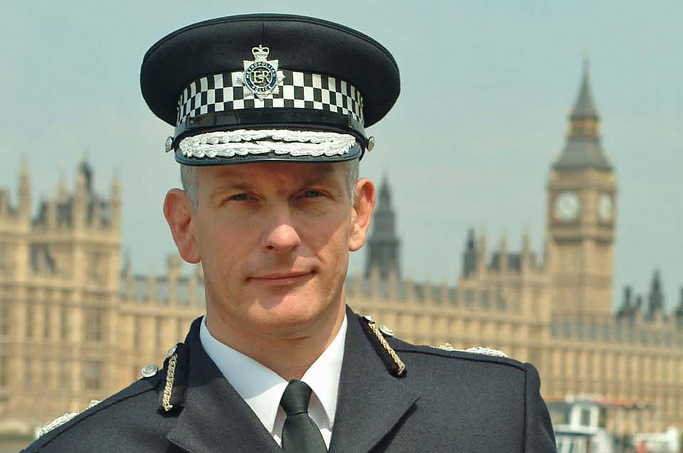 Brian was previously the highest ranking openly gay police officer. Image Credit: Liberal Democrats / Flickr
Brian was previously the highest ranking openly gay police officer. Image Credit: Liberal Democrats / Flickr
How did your education shape you?
It was only after I left school, joined the police and then went to university that I think my education really happened. I did a 12-month course with the police and that really had an impact on me. I went back and my colleagues had become racist.
They hadn’t actually become racist – I had come out of being racist, after having become inculcated into the culture. That completely changed my attitude towards things. I’d managed to extract myself but was then like a fish out of water for the rest of my career. I was someone who had been successfully brainwashed by academia, rather than brainwashed by the out of date attitudes in the police.
What was the most important thing your parents taught you?
Honesty. My father was a man of great integrity and it was drummed into us from a very early age that to be honest is the most important thing. Of course, that caused me a few issues in terms of my sexuality, but that’s what I’ve tried to do, and it’s got me into all sorts of trouble throughout my career. Even up until a few months ago.
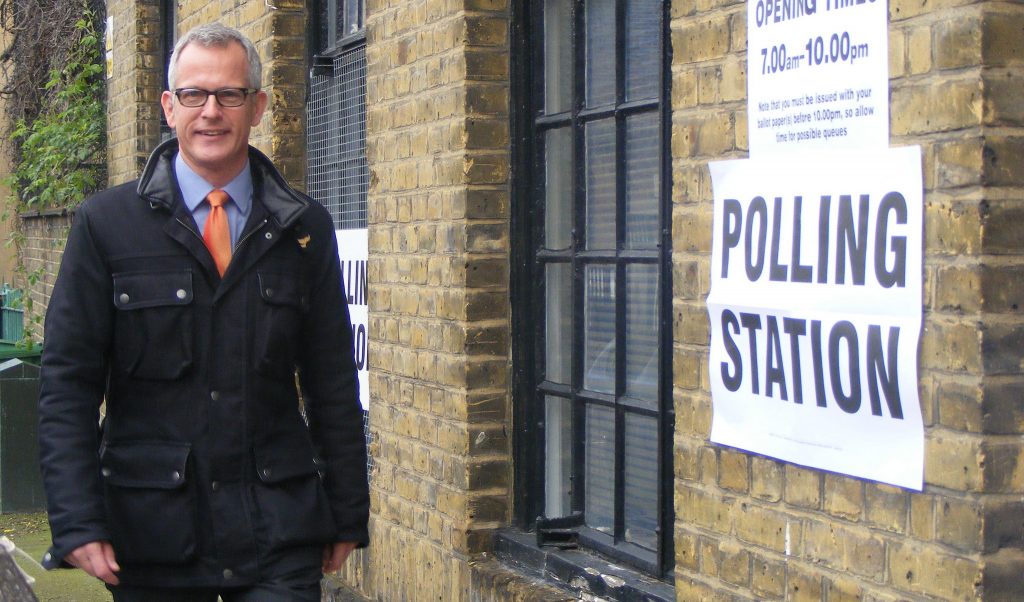 Brian also ran for London Mayor twice as a Liberal Democrat. Image Credit: London SE1 / Flickr
Brian also ran for London Mayor twice as a Liberal Democrat. Image Credit: London SE1 / Flickr
Nature or nurture?
This is a thing I talk to my twin brother about. He’s got a wife and an ex-wife and five kids, and I haven’t. So what was the difference? We were both brought up in the same household, how come he’s mister macho heterosexual and I’m not? So, you know, I think it’s a combination of the two.
What’s your best memory?
I never believed I would see the day where I could stand in front of a judge and she’d say, “we’re here today to witness the marriage of Brian and Petter”, and that was amazing. To be able to marry the person I really loved.
It’s the difference between being tolerated and making allowances for the fact people are gay. We invented this construct of a civil partnership. But for me, equality is about equality, and if you wanna do it, you get married.
What does freedom mean to you?
Freedom means being able to be yourself without fear of being condemned for it. To be able to not worry if you want to put your arm around your partner or kiss your partner in public without thinking will this upset anybody, and in some countries, it’s not just about upsetting people it’s about being put to death because of it.
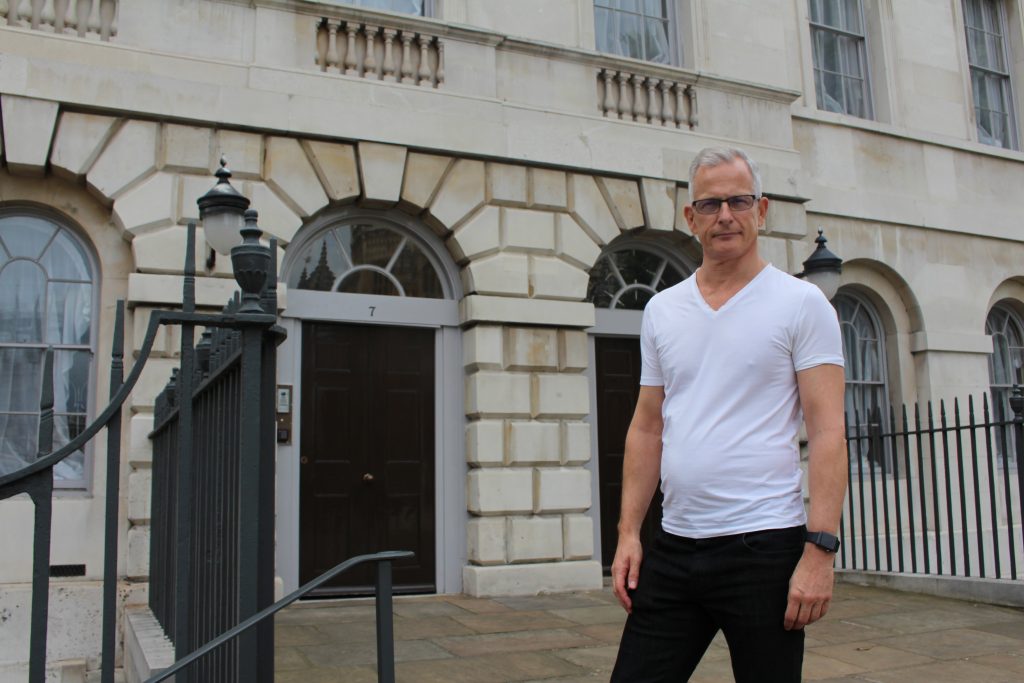 Brian outside his office in Westminster. Image Credit: Jem Collins / RightsInfo
Brian outside his office in Westminster. Image Credit: Jem Collins / RightsInfo
What human right do you value the most?
The right to a family and private life. It would be nice if I could do things without people commenting as if it was something unusual. I went dancing on Saturday night in a gay club in London and the next day it’s being tweeted that’s where I was.
There was a hot weekend in April and Petter had never been to Hampstead Ponds, so we went. The next day it was in the gossip column of the Mail. Just always wondering who’s looking, what they’re thinking and is it going to get in the papers is a bit of a strain.
What’s a lesson about rights you’ve learned the hard way?
There are lots of rights about protecting LGBT people, it’s enshrined in law, but it’s changing people’s attitudes that is the real difficulty. You can just see, whether you look at pay differentials for women, whether you look at stop and search against black people. Whatever the rights are the facts prove the rights are not being enforced.
What would you save from your house in a fire?
You know, the only thing that’s important to me are people. It’s cheating to say my husband, but there’s nothing material which is that important to me, it is my relationships to people that are the most important.
It’s a bit like my mum. When she moved out of the family home we’d been in for 30 years, there were no emotions at all, she just moved the stuff out. I think I’ve inherited it that. Things are here today and gone tomorrow. I’d just get out.
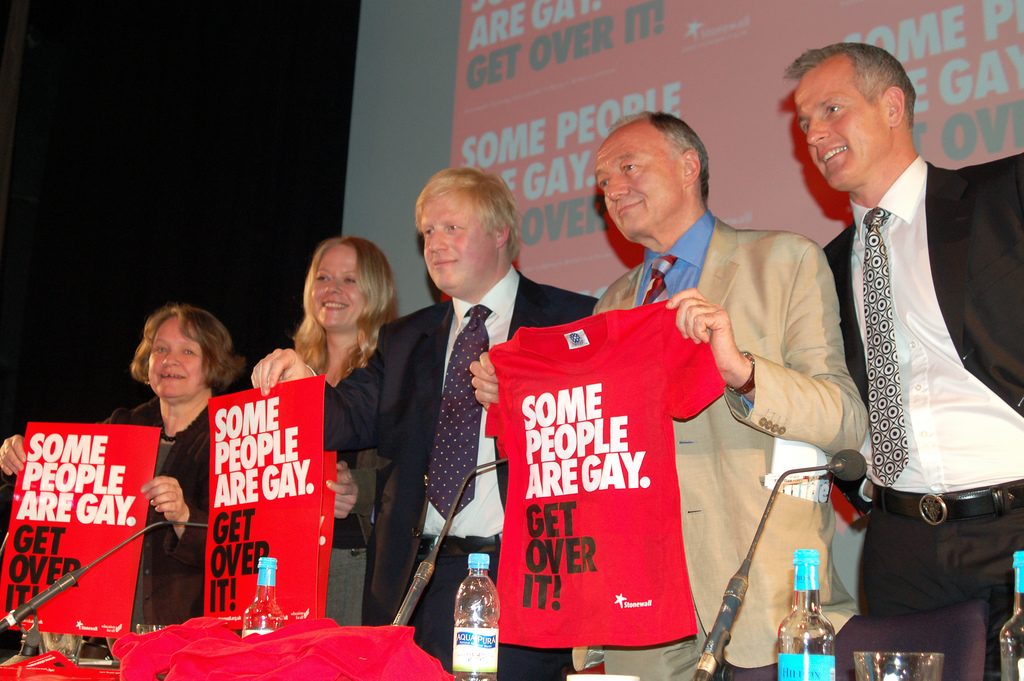 Brian along with other candidates for London mayor in 2008. Image Credit: Jason / Flickr
Brian along with other candidates for London mayor in 2008. Image Credit: Jason / Flickr
Do you ever stop and check your privilege?
I had a bit of a spat with Tim Farron, allegedly. The Archbishop of Canterbury came out in support of Tim Farron, and I thought, this is outrageous because he doesn’t know the full story. Then I’m walking around the House of Lords and there is the Archbishop of Canterbury and I went up to him and said: “Justin I need to talk to you”. And he said yes, of course, let’s walk and talk and we had a conversation.
And he said, “Oh that’s very interesting, I’ve been meaning to talk to Tim and I would have told him this.” Then, of course, I remembered my relative position, and I said I’m terribly sorry if I addressed you inappropriately and he said, “oh no, not at all”. Not many people have the opportunity to take the Archbishop of Canterbury to task if they disagree with what he said publically. That is a real privilege.
What surprises people about you?
People’s attitudes towards me changes on contact. So, people are surprised when they see me doing ordinary things. I don’t have a car, I hate taxis I go everywhere on the bus and the tube. Somebody tweeted, ‘A rare sighting, I saw Brian Paddick in Tesco the other day’. I replied well it shouldn’t be because I live above.
I spoke to an American who said: “Oh you’re in the House of Lords, how interesting.” He said: “Where do you live?” I said Elephant and Castle. He said: “Oh, in a castle?” I don’t live in a castle is what surprises some people, apparently.
What does ambition mean to you?
I’ve often had this argument with people as I don’t feel I’m ambitious, and they say you couldn’t have got to where you did without being ambitious. Ambition for me is, I suppose, trying to make sure you use the skills you have to the best effect.
People see ambition as a selfish thing, never mind anybody else. That’s the problem in the police service. It was just the most amazing job to be able to show them how much you cared about them, it gives me a kick and it makes me feel good to help other people. It’s what makes me tick.
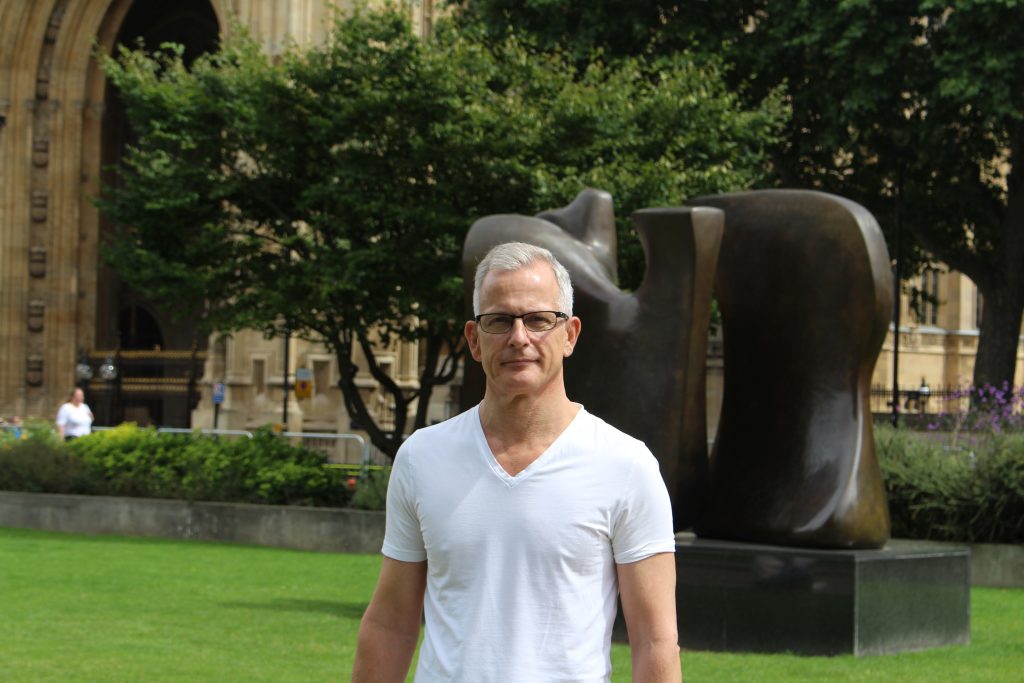
Brian Outside the Houses of Parliament where he sits as Lord. Image Credit: Jem Collins / RightsInfo
What does dignity in dying mean to you?
It’s a difficult one. I remember my father who had a stroke which left him, a proud independent man, relying on my mother. He went to bed and said: “I’m not going to eat or drink anything.” Ten days later he was dead.
It’s very difficult having had that personal experience to believe there will be sufficient safeguards to ensure only people who really don’t want to go on access that, as opposed to people having a bad day. It’s a very difficult issue, I can see the arguments on both sides, I’m just very concerned that people will end up dying who shouldn’t die.
Believer, atheist or agonistic?
Well to use a rather hackneyed phrase now, it’s an inconvenient truth for a sexually active gay man to say he believes in the divinity of Christ. But there you go, I can’t unbelieve what I believe.
What’s the meaning of life?
The meaning of life is to give and receive as much love as you possibly can, for as long as you can. It’s about the quality of life. To be able to love and be loved is the best thing I can think of.

